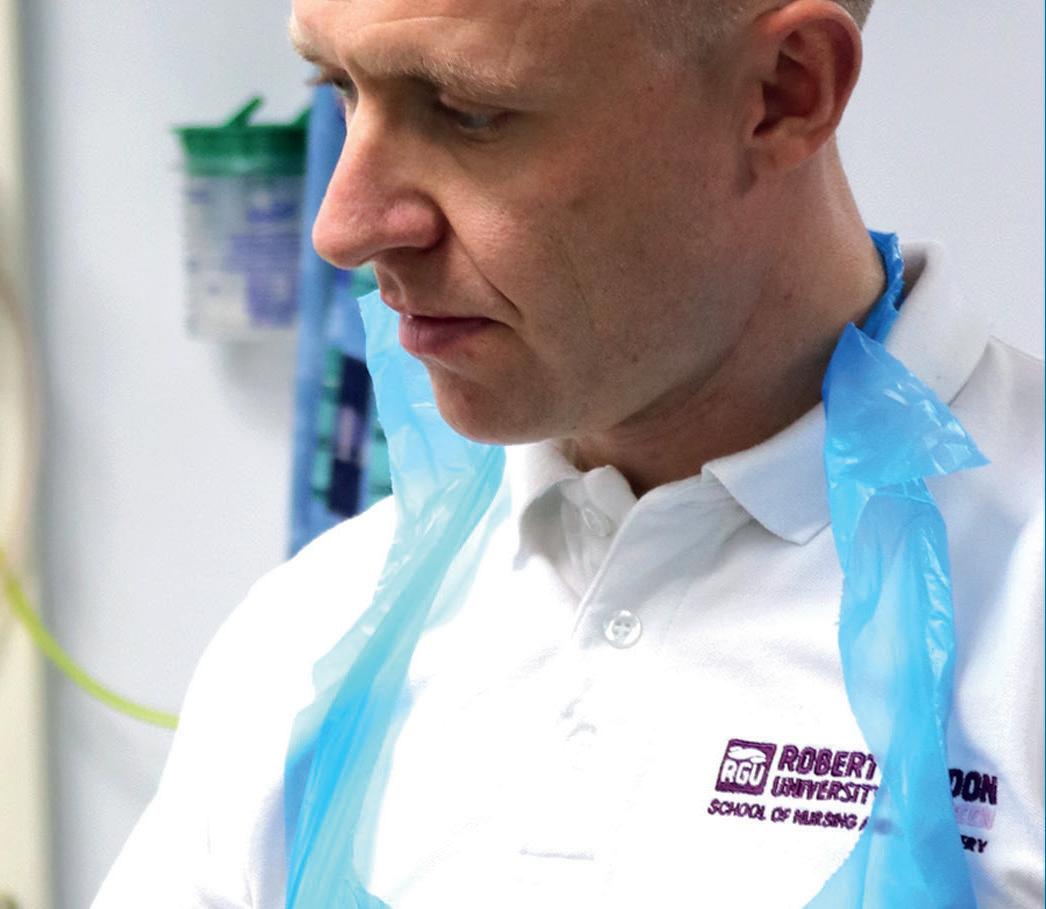EXCEEDING EXPECTATIONS
How to find self-belief to build the future you want

How to find self-belief to build the future you want
Helping you decide on your next steps after school

Simple ways to relax and unwind



The dreaded exams diet is about to begin, but don’t worry: the team at Source are here to guide you through the next few months, and to give you helpful advice on what to do once you finish school.
Inside this issue, we’re helping you navigate exams on page 9, showcasing different study methods on page 10, before highlighting the importance of time management on page 15.



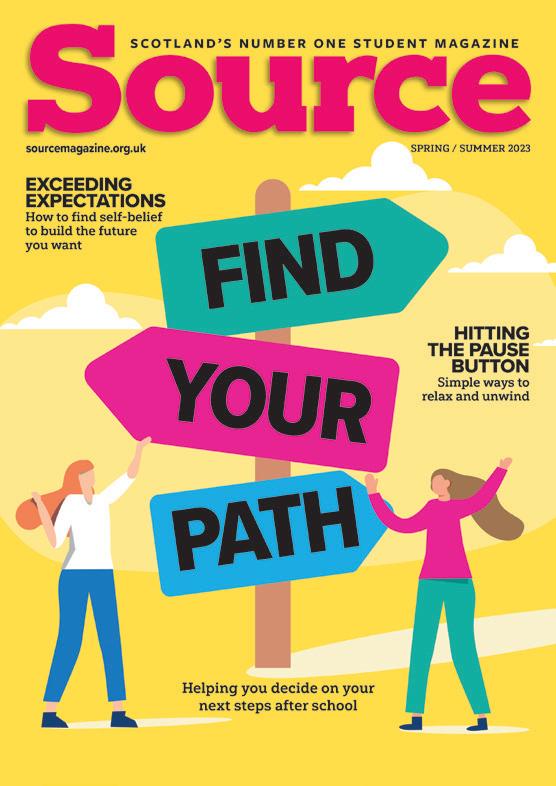
Once your exams are over, you’ll have some big decisions to make. If you’re not sure what you want to do after you finish school, head to page 6 to discover your perfect path, or get specific information about college on page 20, and the world of work on page 24.


All of this pressure can lead to massive amounts of stress, and it’s important you take time to unwind or you could burn out. On page 16 we’re helping you cope when you feel overwhelmed, and on page 30 you can find different ways to relax. All of this and much more inside!



Stay on track with our helpful calendar

APRIL
24
THE SQA EXAM TIMETABLE BEGINS
Keep studying and get ready for your hard work to pay off.
MAY
JUNE
1
END OF SQA EXAM TIMETABLE
You did it! Exams are over and the summer holidays are almost here.
24-30
SCHOOL’S OUT FOR SUMMER
Enjoy a well-deserved break, the school year is over.
MAY DAY HOLIDAY
We’re hoping for sunshine this May bank holiday.
2
IN-SERVICE DAY
Some schools will have an in-service day where only teachers attend.
BANK HOLIDAY
1 8 26-29
This May, you’ll have an extra bank holiday to mark the coronation of King Charles.
BANK HOLIDAY
Some councils around Scotland will be off for the last May bank holiday weekend.
AUGUST
SQA EXAM RESULTS DAY
The day is finally here to find out how you did in your exams, remember there’s no wrong path if your results are different from what you expected.
14-15
8 16
IN-SERVICE DAYS
It’s time for teachers to head back to school and prep for your return.

BACK TO SCHOOL
Get ready to start this term as a new school year begins.
Always double check term dates for the council you live in
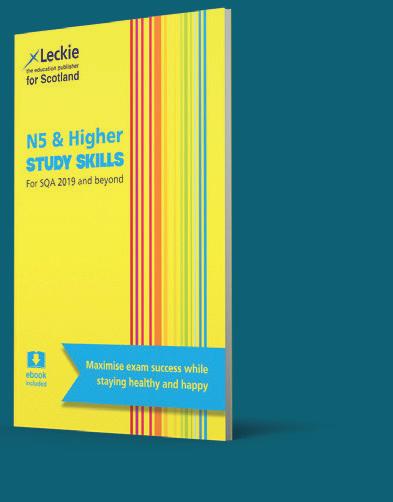
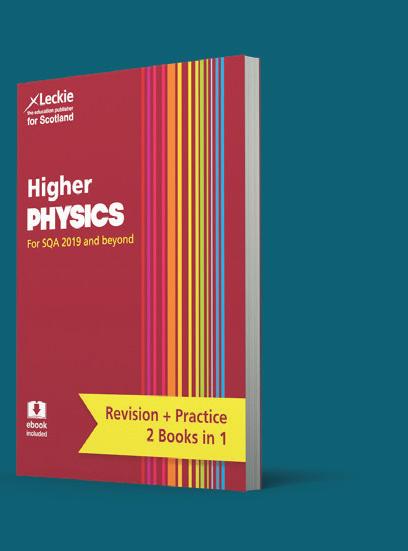

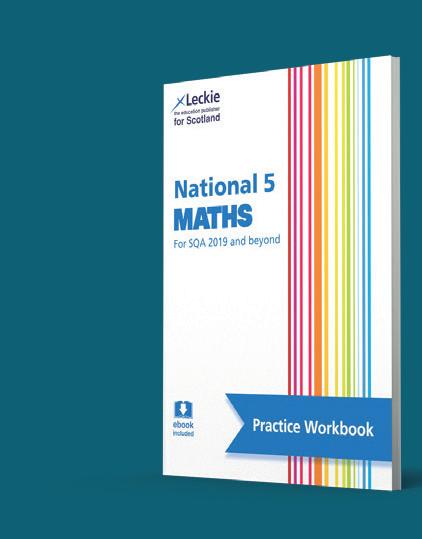
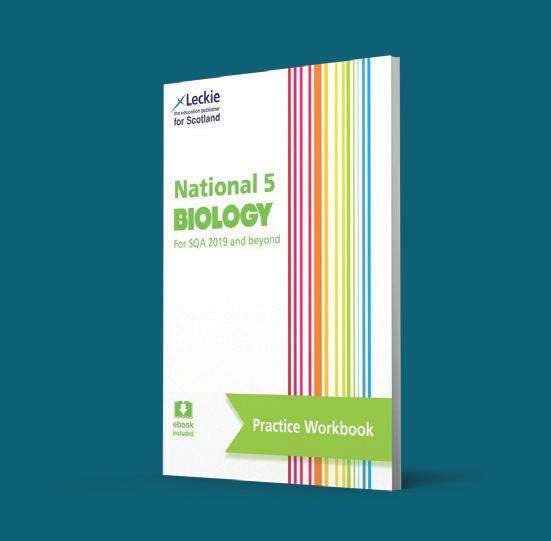

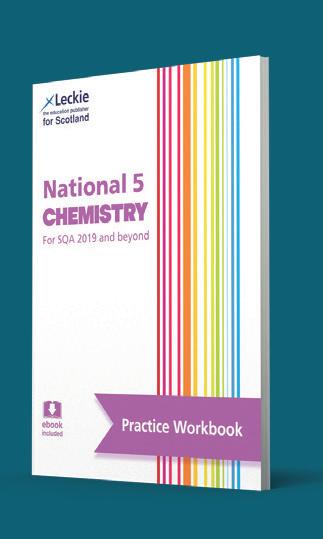

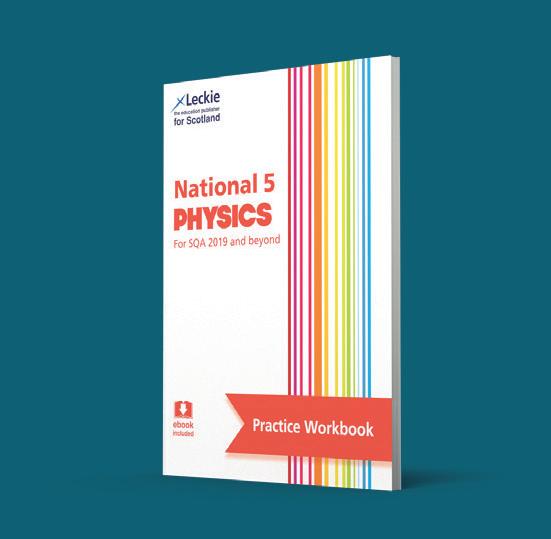

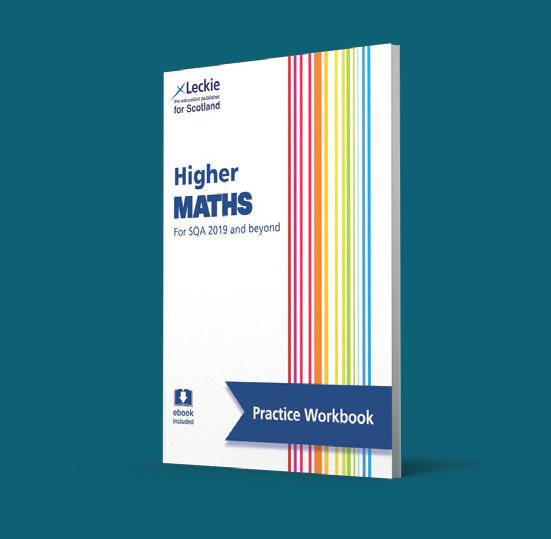

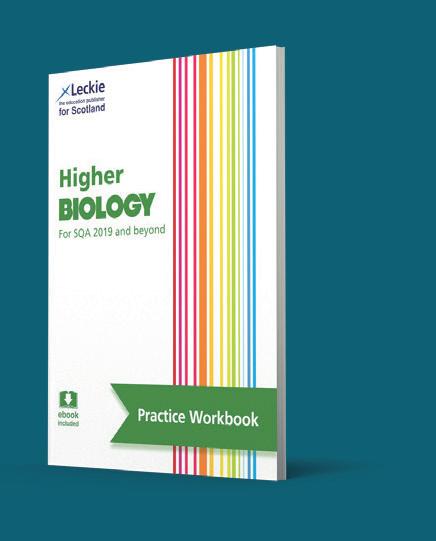

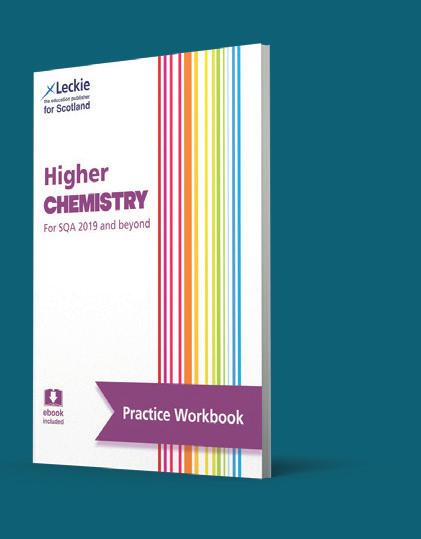

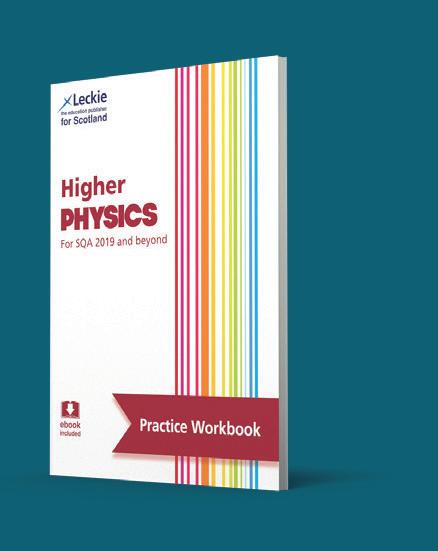

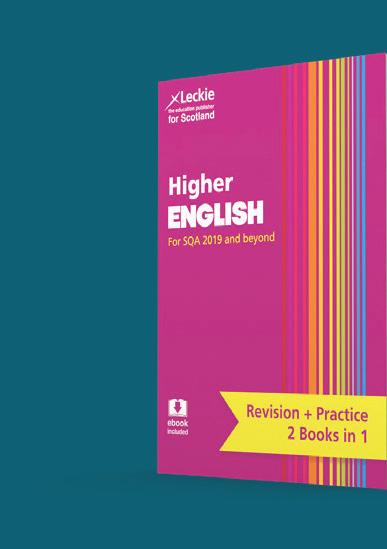
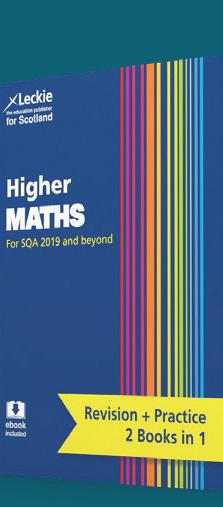


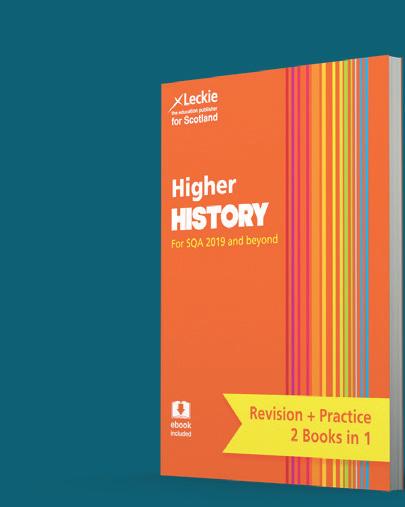

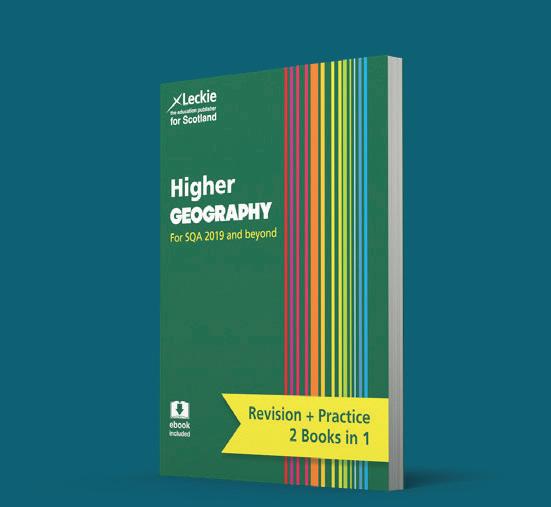




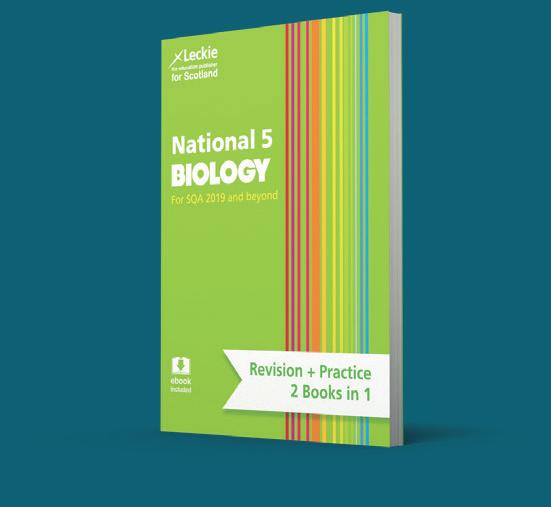

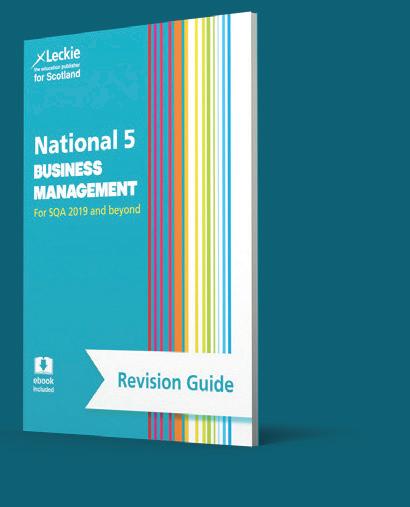

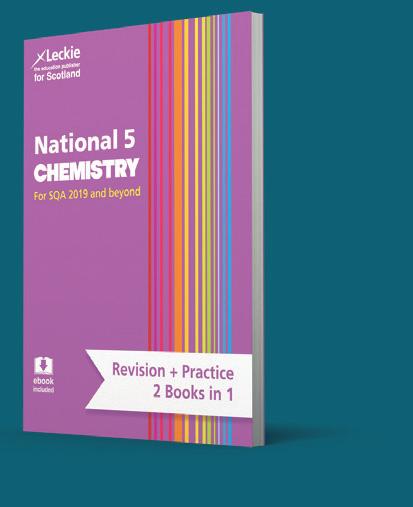


Deciding what you want to do once your time at school is up is one of the biggest decisions you’ll ever make: it will set you on the path you’ll follow moving forward and could change your whole future
You might have a direct path where you head straight for a career, or you could have a few steps along the way if you need to gain knowledge and some extra qualifications first. Whatever you choose, make sure it’s right for you, the career you would like to pursue, and suits your personality well in terms of how you best learn new skills.
Every step of the way, there are people and organisations ready to offer a helping hand, whether you’re just doing your research or you have already picked which path to follow.
PERFECT FOR: School leavers or people looking to gain an extra qualification.
STUDY TOWARDS: A Higher National Certificate (HNC) or a Higher National Diploma (HND).
FIND SUPPORT: UCAS (www.ucas. com) and Colleges Scotland (www.collegesscotland.ac.uk).
College courses normally last two or three years and they follow a similar format to school in terms of class sizes and your schedule. If you love the structure of school but want to take on something more academically challenging, college is the perfect place to go. You could complete a full HNC or HND and graduate to join the working world, or use these qualifications as part of a university application in the future.
PERFECT FOR: People who want to study a full degree.
STUDY TOWARDS: A Bachelors, Honours or Masters degree.
FIND SUPPORT: Prospects (www.prospects.ac.uk) and The Student Room (www.thestudentroom.co.uk).
If your heart is set on attending university once you finish school, you’ve probably already decided on the degree that’s right for you. At university, your time will be split between lectures, tutorials and studying, with placements if your chosen course requires this. You’ll
get the chance to meet new people and try different clubs and activities, but it will also require self-discipline and a lot of hard work.
PERFECT FOR: People who want to kickstart their career and work fulltime.
FIND SUPPORT: My World of Work (www.myworldofwork.co.uk) and Employability in Scotland (www.employabilityinscotland.com). Are you eager to get in to the workplace and pursue your chosen career full-time? Going straight into the world of work is meant for you. While doing your research, look out for positions that are described as ‘entry-level’ or ones that offer ‘all training necessary’. This will give you the chance to get support and gain skills when you start, and there could be more opportunities for development in the future.
PERFECT FOR: People who want to earn while they learn.
FIND SUPPORT: Apprenticeships Scot (www.apprenticeships.scot) and Early Careers (www.earlycareers.scot).
An apprenticeship combines the chance to learn at a higher education level with full-time work, meaning that you gain both practical and academic knowledge, all while getting paid a proper wage. This is the perfect option for people who want to learn more, but would prefer to do it on the job rather than in a classroom or lecture hall. After you finish school, you’ll be able to pursue a Modern Apprenticeship or a Graduate Apprenticeship in Scotland, and with more than 90 types of apprenticeships available in the two categories, you’re bound to find something that piques your interest.
PERFECT FOR: People who are still deciding on the best path for them.
FIND SUPPORT: Gap360
(www.gap360.com) and GoAbroad (www.goabroad.com).
Really not sure of what you want to do yet? It’s ok to take a step back and consider your options for a little longer. A gap year is often seen as a chance to travel the world and experience new places, but it is also a time to learn who you really are and what you want out of your future. It doesn’t have to be a whole yearyou might make a decision within a matter of months and pursue work, an apprenticeship or start your college or uni application for next year – and you can work during your gap year to support yourself financially, or so that you have money to spend time with friends and see new places.
Developing your skills will help you succeed, regardless of the path you choose to follow next. If you have confidence, good people skills, communication skills and a good work ethic, any employer, higher education provider or apprenticeship provider will be impressed.
You can build on and develop these skills in everyday life during conversations and interactions. Doing mock interviews with friends, family or a guidance counsellor is a great way to gain confidence and help you feel prepared for whatever comes next, you might even find you’re a natural at answering questions under pressure. Trying a new activity or hobby, joining a local club with people you don’t know or just speaking up during a debate in class can all help to build your confidence if this is something you’re struggling with.
Regardless of what path you choose to follow next, remember you can always switch to a new one if you aren’t enjoying it or want a change.
If you are unsure about what to do next, speaking to a specialist careers adviser can help. Call the Skills Development Scotland (www.skillsdevelopmentscotland.co.uk) helpline on 0800 917 8000
Receive £1,500 per year for up to four years





We offer two scholarships; one for engineering students, apprentices and degree apprentices who have faced financial or personal challenges and the other is for high achieving students and degree apprentices with a passion for engineering.


Apply today and change your tomorrow: theiet.org/future-talent







Deadline for applications: 22 September 2023








As you approach the day of your first exam, it’s almost time for all of your hard work and studying to pay off. It can be hard to stay calm and not let anxiety get the best of you as the exams diet gets closer, but there’s different ways you can help ease this. Eating well, getting a good night’s sleep before the big day and making sure you have everything prepared to go the night before can make the experience less stressful.
In advance of each exam day, double check where it is taking place. This is normally your school hall, but always check your timetable to be sure, and ask your teachers if you are uncertain of where to go or when to arrive.

The night before, you can prepare your bag ahead of getting a good sleep. Make sure you have pens that are black or blue, a clear bottle of water with all labels removed, a watch to keep track of the time (make sure it isn’t a smart watch), and your Student Candidate Number (SCN). Your teacher will provide you with your SCN in advance of your exams, and it may also be available on a list outside of the exam hall. You’ll need to write this on the front of all of your exams to help the SQA identify that it’s your answers.


On the day of each exam, make sure you arrive at school and head to the hall in plenty of time. Even if you can’t take your seat yet, it will give you the chance to have a last glance over your notes. You will have a dedicated seat number which will be different for each exam you sit: this can usually be found outside of the hall on a list. Remember, you can’t bring in any electrical devices so try to leave anything valuable at home –calculators are the exception to this rule, check with your school whether you need to bring own or if they will provide one.
The invigilators – the people who supervise exams – could let you into the exam hall up to ten minutes before it starts. When you are let in,
make sure you find your seat quickly and quietly. On your desk you’ll find a cover sheet for your personal details, the exam booklet where you will complete the exam, and blank sheets of paper that you can use for any notes or calculations that shouldn’t be included in your final answer.
You can fill in your cover sheet with your name and SCN before the exam starts, but don’t open your exam booklet until you are told to. Once the exam begins, it’s time to put your knowledge to the test. If you need more paper for notes or you have to go to the bathroom, raise your hand and an invigilator will come and help you.
Once your exam is done, you’ve made it to the end of the process and you get a chance to relax – you did it!
FIND OUT MORE
Learn more about the exams process and register to get your results by text or email on the SQA website (www.sqa.org.uk)

Once your exam is done, you’ve made it to the end of the process and you get a chance to relax - you did it!









If you’re dreading starting your study notes, or you’re just not quite sure where to start, making a plan can help. This can aid even the most organised student, and you don’t have to come up with it alone. The SQA MyStudyPlan app (www.sqa.org.uk) is easy to navigate and will help you make an effective study plan without wasting time. If it would help, you can write this out on paper or a whiteboard after its ready so that you can keep it in sight while you study.
If you would rather make your own study schedule, think about the topics you need to prioritise, what free time you have after school and at the weekend, if you could make use of free periods or study leave, and then get planning. Sites like Pinterest can provide inspiration for the perfect study plan, especially if you tend to use things more if they’re visually appealing and well organised.










It’s going to take time to sift through all of your notes and textbooks from the last year, if you’re lucky your teachers will give you concise information covering all of the topics you’ve learned about. To make this easier, try to find a study method that works for you. Tools like the Education Planner (www.educationplanner. org) can help you discover your learning style and what steps to take. You might prefer to use bullet points in a notepad, flashcards, posters or diagrams. It can help to use visuals or highlighters to annotate your notes when going back over them.
When you’re about to tackle a new topic in your study schedule, consider all of the resources you have at hand. This could include your own notes from throughout the year alongside any new ones you’ve made in preparation, but you also have access to your teachers, any digital notes they’ve provided and other online resources like BBC Bitesize (www.bbc.co.uk/bitesize).
As exams approach, you should get the chance to have a quick refresher of different topics in class, but if this doesn’t happen then make sure you ask your teachers any questions you have well in advance of exam day.
You don’t always have to study solo, and in some cases, making it a group effort can help. If you want to get together with friends who are doing the same subjects as you, it will give you the chance to compare notes and ask questions, but make sure you’ll be able to focus instead of getting distracted.
If your parents, siblings or carers have time, they can help to quiz you on exam topics, identifying the areas that you need to improve on and helping to build your confidence up before exams begin.
FIND OUT MORE Find previous exams, aka past papers, on the SQA website to help you study (www.sqa.org.uk).
The key to taking in all of the information you’ve learned in the last year before an exam is having the right study method









Conquering feelings of self-doubt and casting negative opinions or perceptions to one side is easier said than done: it takes time to overcome these feelings. The first step is understanding that regardless of where you come from, the paths that the people around you have followed before, and what people say you can or can’t achieve, you have the power to build the future that you’re dreaming of.
If you don’t have much support around you - whether that’s in school, at home or from friends – reaching for something bigger and building your confidence can feel almost impossible. You might have the desire to launch your own business, secure a place on a sought-after university degree, or to start a career that’s different from your peers, but feelings of self-doubt are holding you back.








You can start building more self-belief and confidence in a few simple steps. They might seem silly at first, but over time you will notice a big difference in how you feel. The

mental health charity Mind (www. mind.org.uk) has an easy-to-follow guide on building confidence and self-esteem. The guide talks about how powerful these qualities can be, what they are, and how to build them up. The tips include things like repeating positive statements to yourself, avoiding comparing yourself to others, and knowing that it’s ok to make mistakes.
Remember, you’re the only person who can truly control your future, and there’s no wrong path to achieving what you want, even if it takes a few extra steps along the way.

When you consider who you want to be in the future, don’t let self-doubt or other people’s opinions hold you back
Depending on what your aspirations are after school, there could be a programme or scheme to help you smash expectations.
If you still have another year of school ahead of you and you live in or around Glasgow, you could be eligible for the University of Glasgow’s TopUp Programme (www.gla.ac.uk). The programme works with around 100 secondary schools in the west of Scotland, giving pupils from deprived areas and those who have faced additional challenges in their education a taste of higher education. This gives people who might not normally consider the route a chance to learn key skills that are needed to successfully study in higher education. Your school
It’s normal to need some motivation or a pick me up sometimes, especially when it comes to boosting your selfconfidence and striving for bigger things. This can be especially hard if you don’t know anyone who has done it before.
Luckily, plenty of people have successfully walked this path before you, some of them are huge names whilst others are succeeding closer to home, but all of them are worth reading up on or following for the days when self-doubt is clouding your judgement.
Millionaire, entrepreneur and podcast host Steven Bartlett (@Steven) is wellknown for prompting people to open up on episodes of Diary of a CEO and for his spot on Dragon’s Den, but the 30-year-old wasn’t always so fortunate. Steven was born in Botswana and raised in Plymouth where his family struggled financially, and at 18-yearsold, he dropped out of university. He then had to steal food and search for loose change to feed himself. Determined to succeed despite his circumstances, Steven founded his first proper business, Social Chain, from his bedroom. This same company is now valued at around $600 million.
should be able to check if you are eligible to take part in the programme.
In 2021, the Scottish Funding Council (www.sfc.ac.uk) brought together existing, successful projects that support pupils from under-represented backgrounds into higher education. The National Schools Programme combines impartial advice and guidance; a visit to a higher education campus or a residential experience; a recognised higher education or top-up course; and specialist support to access highdemand professions like medicine, law, design and architecture. By combining all of these aspects, the programme removes barriers to higher education, encouraging all pupils to apply regardless of their background.
Since then, he’s gone on to found multiple companies, growing his fame and fortune along the way. Now, Steven prides himself on being a role model for people from less privileged backgrounds like him who don’t feel represented in particular industries, and an advocate for the power of selfbelief.

Looking to be inspired by Scottish women killing it in business? Follow the founders of one of Scotland’s biggest influencer agencies, Aquarius Creative (@aquariuscreative_). Kirsten Cameron and Amy Moore, who are just 30 and 26, first met when they worked together at fashion brand Quiz, but while they were stuck on the runway on a delayed flight, they decided to start their own business. Since Aquarius Creative first launched in February 2020, the duo has tackled the challenges of being a new business in a global pandemic, and have constantly been told to get a socalled real job. Despite these obstacles, Kirsten and Amy followed their guts and now, the company represents some of the biggest influencers in the country including Mollie McFarlane and Abbie Blyth, and even has its own BBC show, The Agency: Unfiltered.















Looking for more inspiration and programmes to get involved with? Visit the Young Scot website (www.young.scot) to discover people’s stories on their Youth Voice tab.
Reaching for something bigger and building your confidence can feel almost impossible
Where learning means more
UHI Moray is different from traditional universities and colleges. We offer highly flexible, multi-level access to further and higher education making it easy to join and leave at just about any stage in your academic, professional or personal journey.
You can join us for a short course, a full degree or postgraduate qualification whether you are coming straight from school, or much later in life.
No matter how many semesters or years you spend at UHI Moray, each course you take will offer a clear pathway for progression to the next level, or to the world of work.

UHI Moray: Where learning means more
Apply now or find out more moray.uhi.ac.uk student.services.moray@uhi.ac.uk 01343 576000
Are you always trying to find the time to see your friends, fit in that extra studying, or just to relax? Sometimes everything you have going on can feel overwhelming - especially if you’re in your final year of school or you have a lot of responsibilities at home – leaving you with little time to look after yourself or to see the people you enjoy spending time with.
If this sounds relatable, learning how to manage your time properly can be a big help. Even if you’re already an organised person, reassessing how you approach time management is never a bad thing.
Whether you still have a few years of school ahead of you, you’re about to start your last ever high school exams, you’re thinking ahead to your time in higher education, or you’re looking to start a full-time job soon, time management is a skill you desperately need.
This is something you’ll require to ensure you can study effectively, especially when you start higher education. If you’re heading to university soon, you’ll be responsible for managing your own time, ensuring you complete assignments (the more mature version of homework) on time and that you can fit in studying around your lectures and tutorials.
If you’re heading to the world of work after school, employers will already expect you to have this skill. You’ll need to organise your days, manage your workload and in some cases, work to deadlines.
The phrase time management can seem vague and overwhelming, but by implementing simple tips, you can get in control of your time. In the long run, this can help reduce
stress and make you more productive.
Calendars and dedicated apps can be helpful tools in managing your time and creating a schedule. If you’re using the calendar on your phone or a paper diary, include the things you do every day or week – like the time you are in school or at a part-time job – alongside one-off events like hanging out with friends or going on holiday. This will show you what time you have available outside of your everyday commitments, and
can even help you schedule in time to relax and practice self-care.
Head to page 10.
Downloading a calendar like Google Calendar will also give you the option to colour code your schedule, invite people to events or plans, or to keep separate calendars for school and social life.
Apps like Remember The Milk are great for students, helping you to sync your calendar and todo list across multiple devices so that you never miss an important point in your schedule.
Whether you’re about to finish your final year of school with a jam-packed exams season, you’re sitting your exams for the first time, or are picking your subjects for next year, it’s normal to feel worried or anxious about the upcoming months
It’s a big time for you and your peers, and you might feel overwhelmed with the pressure from school, at home, or from yourself to do well, get the grades you need and make the right choices. During this time, it’s important to look after your mental health and wellbeing, paying attention to your stress levels and ensuring you don’t end up feeling burnt out.
Burnout has become a bit of a buzzword over the last few years, so you’ve probably heard the term before, but you might not know what it really means. Burnout isn’t a diagnosis or condition by itself: it’s a combination of feeling extremely stressed and exhausted. This could lead to physical symptoms. If you start to feel tired all of the time and like you have no energy to focus on your studies, hobbies or on everyday tasks, it could mean that you’re heading towards burnout.
If you haven’t thought about the effect stress is having on your daily life before, you can use an online tool like the Be Mindful stress test (www. bemindfulonline.com) to answer questions about how you are feeling and start to understand how this is affecting you. This tool uses the Perceived Stress Scale, the most-used psychological scale for measuring the perception of stress.
Don’t worry: there’s ways you can
tackle these feelings before they take over your life, and if you feel like you could already be experiencing burnout, there is support available.
Some resources are tailored to young people, like Student Minds (www. studentminds.org.uk), while other general resources like SAMH (www. samh.org.uk) and See Me Scotland (www.seemescotland.org) are also great places to go for advice, information and support.
Outside of your school life and exams, other factors in your life could be causing stress. This could be your home life, keeping on top of a part-time job, or just generally wondering what the best path is for you in the future.

Social media can also be a trigger for stress, especially if you scroll endlessly to avoid studying and other responsibilities. The desire for likes, shares and retweets can feel competitive, or you might be guilty of comparing yourself to others online. Remember, social media can be a place to flourish if you’re following the right people and using it in a way that is helpful to you.
Setting screen time limits on your social media apps, avoiding social media when you first wake up or before you go to bed, and having a regular clear out of who you’re following can all be good practices.
Creating an environment where it’s ok to talk about mental health online and with your friends is a great step to take, making people aware that you’re there to listen, but also that you might need support sometimes.
If you want to talk to someone anonymously about how you’re feeling, call the Samaritans (www.samaritans.org) on 116 123, or text SHOUT to 85258
Social media can also be a trigger for stress, especially if you scroll endlessly to avoid studying and other responsibilities



















When you were younger, did you dream up science experiments, long to be an astronaut, love concocting potions with kitchen ingredients or get a thrill out of mastering a new sum in maths? If so, you were already interested in STEM subjects from a young age
STEM careers include any job which falls into science, technology, engineering and maths industries, and the thousands of roles available come with a host of opportunities and benefits. These roles are usually well paid, come with chances for development, and are ever-changing thanks to the demand for advancements in STEM. If you love problem solving, being creative and being academically challenged, you could thrive in a STEM career.
This year, STEM jobs are expected to account for nearly eight per cent of all jobs in the UK, that’s a huge amount, equivalent to around 2.5 million jobs overall. It’s no surprise that STEM roles account for a huge number of jobs, not just here but across the world: they’re essential to every single one of us, and new positions are continually being created.
STEM professionals are responsible for things we use every day: our phones, the internet, modern transport; new medical treatments and so much more. From microbiologists and aerospace engineers, to video game designers and cosmetic scientists who create new lipstick shades, there are STEM roles to fit an incredibly wide range of skills and interests.
Despite the importance of STEM roles to society, in 2021, the Institution of Engineering and Technology (IET) revealed that the sector had a shortfall of 173,000 workers. By being part of filling this gap, you could make a difference.

STEM roles are more than creating the next cool car or the latest smartphone innovation, you could help tackle the climate crisis, be part of improving access to healthy food and water around the world, or create technology to aid the everyday lives of people who need assistance and care.
As soon as you take your first maths or science class at school, you are already on the right track to start a career in STEM. With such a high demand for people to enter these industries, there are now more ways than ever before to get started once you finish school.
You should focus your research around the particular role or area you want to get involved with, but there are organisations ready to offer general advice and information
on how to get started, highlighting the qualifications and skills you might need.
The IET (www.theiet.org) focus on engineering and technology, Maths Careers (www.mathscareers. org.uk) tailor their information to people studying or about to study at Undergraduate level, while organisations like STEM Learning (www.stem.org.uk) and STEM Graduates (www.stemgraduates. co.uk) offer wide-ranging advice and signpost to other sources of information.
Ready to explore the possibilities that come with a career in STEM? Use the Bright Network Career Path Test to discover roles that suit your skills (www.brightnetwork.co.uk).












College is becoming a popular choice for school leavers, offering a similar learning structure and the chance to move on to university once you’ve completed your course
In 2020-21, nearly a quarter of higher education new starts went to college, signifying an increase of around seven per cent. It’s no wonder that college is becoming a more popular path: colleges often have smaller student populations and course sizes so you could get more one-to-one time with your lecturers; you could gain more practical skills than at university; the learning structure is similar to the one you’ve experienced in school.
According to Colleges Scotland, the member body for colleges throughout the country, there are more than 25 colleges across Scotland, giving you plenty of options if you want to follow this route.
If you’re reading this, you’ve likely had talks from your school

or guidance counsellor about why college could suit you. You might have already submitted an application, but don’t worry if you haven’t – there’s still time. Most colleges open for applications in January and course spaces are filled on a first come, first served basis. This means that some courses fill up fast, while others still have spaces available until the end of the summer.
It’s important to not only check the deadline and availability for each college, but for each course that you’re interested in. You can do this by contacting the college admissions department directly. Once you’ve put in an application, you will be invited for an interview to talk about why you are a good fit for the course. Some courses will require you to bring a portfolio of your work, but you’ll get told to do this in advance.
Once you’ve been to an interview,
it’s time for the dreaded wait to see if you get an offer. This could be a conditional where you have to achieve certain exam results to secure your place, or an unconditional that you can accept straight away to make sure you have a spot after the summer.
Once you know what college you want to go to, it’s important to apply for student funding as soon as possible. Use our helpful money guide on page 27 to find information about what to expect. Usually, you have to apply for funding from SAAS by the end of June to receive it in time for your studies starting.
College courses usually begin at the end of August each year, so after the summer, your first day will be here before you know it. You won’t need to do much before you start, but getting any stationery or equipment

you need will help you feel ready and prepared.
If you’re commuting to college each day, make sure you research what buses or trains you can get, or where you can park your car, and if there are any discounted rates available for students.
STARTING POINT
Picture this: your first day of college has finally arrived and you’re feeling nervous, but you’ll already be prepared. Around four weeks before your course begins, your college should be in touch with some essential information to get you ready for your first day. This includes when your first day of college will be, if you need to attend any induction classes, where to pick up your student ID and other important information. You will normally receive your student log in and class timetable ahead of your first day, but
if you haven’t then this will be part of your induction.
NEXT STEPS
The end of your college years might seem far off right now, but before you know it you’ll be planning what to do next. You might be ready to enter the world of full-time work and start your career, but there’s other pathways you can take to continue learning. In 2019, around 4,000 students that started university courses in Scotland came straight from colleges.
This is a great pathway if you want to use college as a stepping stone to a bigger degree or qualification, and often you don’t have to start university from first year. Through Scotland’s six articulation hubs, colleges work directly with universities to give students the chance to enter the second year of a degree after completing a
Higher National Certificate (HNC), or into second or third year if they have completed at Higher National Diploma (HND). One of the universities involved is the Open University in Scotland (www.open. ac.uk), so you could even follow this path through distance learning.
To learn more about the path to college, speak to UCAS (www.ucas.com), and to find out more about articulation hubs, visit the Universities Scotland website (www.universities-scotland.ac.uk).

APPLICATIONS OPEN: JANUARY 2023
College applications are already open, but you still have time to make a decision about your future – contact the college you’re interested in to see if there’s still spaces.
EXAMS BEGIN:
24 APRIL 2023
It’s time to ace your exams to get into the course you want.
CLEARING OPENS:
5 JULY 2023
Didn’t have a chance to apply to the college you want? This is your opportunity to look for spaces.
RESULTS DAY:
8 AUGUST 2023
Find out whether you got into your first choice. Remember, clearing is still open.
CLEARING CLOSES:
17 OCTOBER 2023
In the middle of October, clearing closes and colleges will no longer be accepting applicants for courses that start this academic year.

Do you consider yourself an empathetic person who is always looking to help others? If the answer is yes, you could look to pursue a career in healthcare. The sector desperately needs more workers to help make a difference, and with a wide range of roles on offer, there’s something to suit everyone based on your interests and skills.

There are a few different ways to start exploring a career in healthcare: you could begin by pursuing work experience at your local GP Practice, dental surgery or hospital; head straight to filling out a job application for a role that you’re interested in; or you could apply for a healthcare apprenticeship.
The NHS have a host of Modern Apprenticeship roles available depending on your local health board. These are suited to anyone aged 16-24 and will see you earn a wage while you learn on the job, and are available in hospitals, offices, care homes and community health centres. Once you’ve completed your apprenticeship, you’ll also have an industry-recognised qualification to

apply for future roles.
If you’re still in school and are thinking about a career in healthcare, you could pursue a Foundation Apprenticeship as one of your subjects in S5 or S6, giving you relevant skills and experience before you even finish school.
There are more than 350 different careers within the NHS, meaning that there is a role to suit pretty much anyone. From paramedics, dentists and GPs to nurses, pharmacists and even administrative assistants, these roles are wideranging and each requires a different skillset. The common factor is that each of these roles, whether it’s on the frontline of healthcare or behind the scenes, is helping people around the country by supporting them
when they access healthcare.
With a big choice of paths within the NHS, and plenty of training available for people who are new to the sector, it’s likely that you’ll find something that suits your skillset and what you want to do in your career. It can also feel like a lot to process, especially if some roles seem similar or there are only particular jobs currently available with your local health service.
The NHS Scotland Careers website showcases the roles currently available, but the site also has profiles for more than 100 different careers, helping you to find out more about what the work will be like, the development opportunities each role comes with, and what skills and qualifications you’ll need to pursue it.
Discover more about a career in healthcare through the NHS Scotland Careers website (www.careers.nhs.scot).

If you have a caring nature and the desire to help people from all backgrounds, a career in the healthcare sector could be right for you
WITH A WIDE RANGE OF ROLES ON OFFER, THERE’S SOMETHING TO SUIT EVERYONE
















Over the last few months, you’ve probably had countless conversations with teachers and guidance counsellors about your next steps, helping you to decide what to do once you finish school. As the start of the exams diet becomes closer, decision day is almost here.
Heading to college or university after high school isn’t the right path for everyone, and you don’t always have to follow this route to get into your career of choice. Always remember: you aren’t alone in making this decision, there is support and information available at every stage. Your teachers and guidance counsellors can be a great source of help, aiding you in deciding what to do next and how to get there.
Ready to start your career and to start earning a full-time wage? Entering the workplace straight after school is probably the right fit for you. Whether you have a particular role, company or career in mind, or you still need to do some research to influence your decision, there’s plenty of ways to launch your job search.

It’s normal to be nervous and excited at this time, you’re about to make a big change and you might find it feels like a big transition. Leaving school and starting fulltime work can be daunting: your working hours will be longer than the school day and you’ll have more
responsibilities, but you’ll also have more freedom to choose how you spend your free time, and you’ll be learning new things all of the time.
Doing thorough research is key to finding the right job for you, even if you already know what you want to do, this can help to ensure it’s the right fit. A great way to start is by attending a careers fair, visiting a JobCentre Plus to chat to a specialist advisor, or simply start doing some research online.





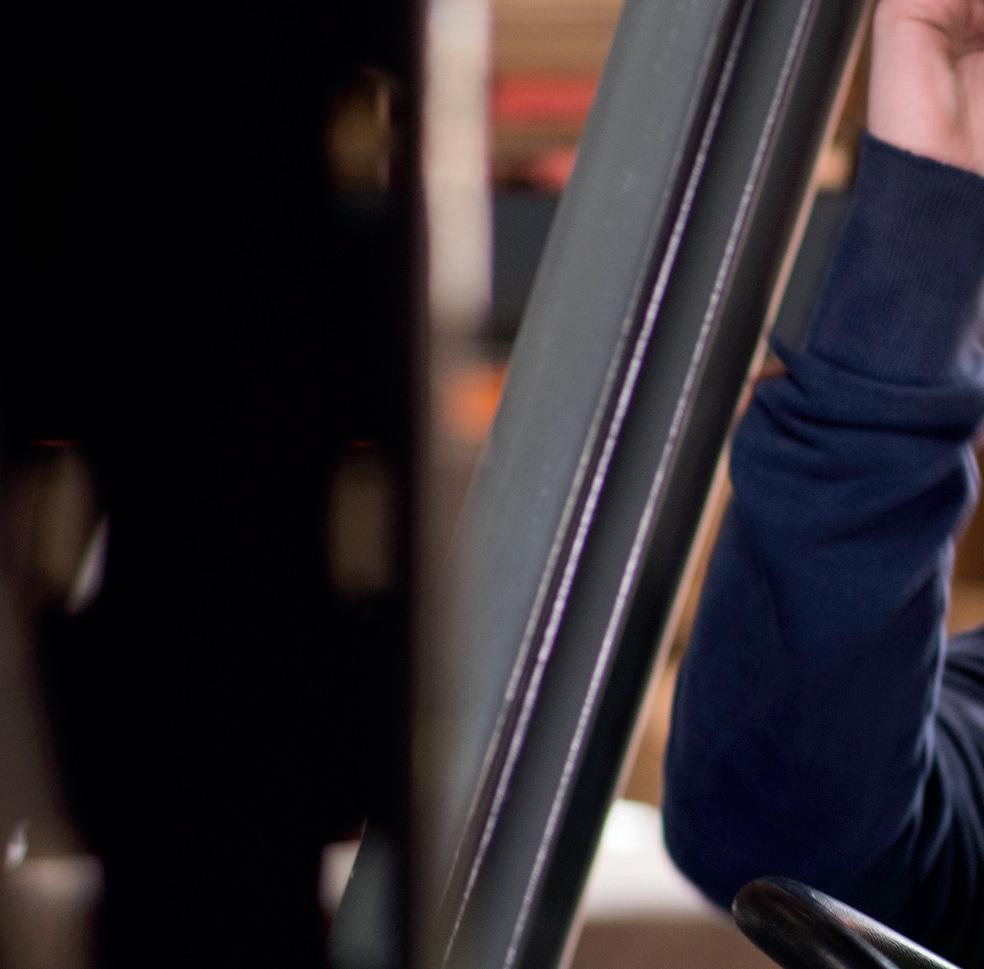

Online research can show you a wide-range of opportunities, and you could even use key phrases like ‘school leaver’ to find the most
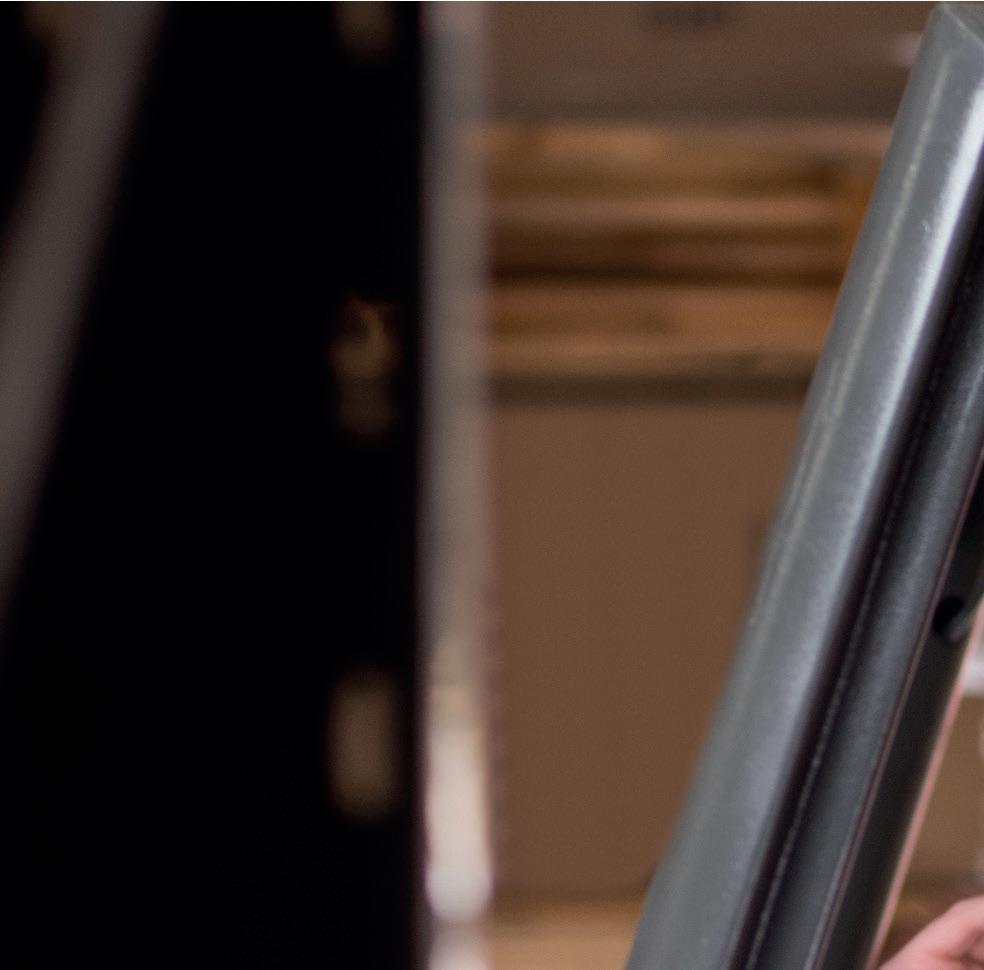
Joining the workforce right a er you finish school can be a big transition, but by becoming informed, you can ensure this is the right choice for you. Find out how to get started
suitable roles. Some of these will offer full training on the job, something which can help you ease into your new role and diminish some of the nerves you’ll likely feel in your first few days on the job.
One of the best ways to find jobs and reach employers is to register on jobs boards like Indeed (www. indeed.com) and S1 Jobs (www. s1jobs.com). Doing this allows you to have a profile where you can upload your CV, input your contact information and give details of the types of jobs you’re looking for. It also means that you’ll get alerts when relevant positions come up.

When this happens, you’ll be prompted to apply, or in some cases, employers will be able to view the CV you have added to your account and they can then message you if you are a good fit for the position. Taking time to build your profile can make it easier to land an interview as you move forward in your search. Remember: when building an online profile to find employment, avoid using email addresses that include rude or gimmicky nicknames.
Networking is another great way
to put yourself on employers’ radars. You could reach out to someone you know in the field you are interested in, or if you don’t know anyone, set up a profile on LinkedIn (www.linkedin. com). This is essentially a social media network for people in the world of work. It lets you find people in the career you want to pursue or people with common interests.

If you know you definitely want to pursue full-time work after school but you have no idea what you would like to do, pursuing work experience can help you to explore your options. Reach out to a range of companies in your local area and ask if you are able to do some work experience or shadow someone. This will give you additional skills to list on your CV, but you’ll also be able to learn more about different career paths to influence your decision.
Don’t panic if you don’t find the right fit straight away, or if you don’t get an interview for the first few roles you apply for: there is always more opportunities out there.

Reach out to a range of companies in your local area and ask if you are able to do some work experience

If you’ve lived in Scotland your whole life, or just for the last three years, you’ll get your course tuition fees paid by the Student Awards Agency Scotland (SAAS). The same agency also provides bursaries and student loans, but you have to apply for these each year. To be eligible for this funding, you must be studying on an HNC, HND, undergraduate or postgraduate course.
Once you know what course you want to do, it’s important to apply to SAAS as soon as possible, don’t wait until your exam results are through. Even if you haven’t been accepted onto your course yet, SAAS will only assign your tuition fees once this happens, so there’s no reason to wait.
The amount of money you receive from SAAS depends on your household income, background and circumstances. For the 2023-24 academic year, the bursary ranges from nothing to £2,000, whereas everyone can get the student loan which ranges from £5,100 to £6,100.
For certain courses, like nursing, you could be eligible for an additional grant, aka funding that you don’t have to give back. In certain circumstances, you could get a different grant or loan depending on your situation, like if you are a care leaver or if you are independent from your parents. A great tool is the Turn2Us (www. turn2us.org.uk) grant search, allowing you to find any charitable funding
or benefits that you are eligible for. The Scottish Government (www.gov. scot) also provide a helpful guide on the eligibility criteria for different bursaries.
When you’re preparing for your big move to college or uni, or even if you’re staying at home and will have to commute, a budget can help you get in control of your money. This considers the money you have coming in and what’s going out, and you can use tools from trusted sites like Money Saving Expert (www.moneysavingexpert.com) and MoneyHelper (www.moneyhelper. org.uk) to make this easier.
Once you’ve arrived at college or university, you might find yourself having to split bills for energy, wifi and other utilities with multiple flatmates. This doesn’t have to be a stressful ordeal where one person is responsible for dividing everything up: there’s now tools available to help make this simple and stress-free.
Apps like Splitwise (www.splitwise. com), Tricount (www.tricount.com) and
Housemate (www.natwest.com) all let you input the bills that need paid and tell you how much each person owes. Housemate was created by NatWest and is linked with Experian who report credit scores. This partnership means that you can get your rent payments recognised in your credit history, and in a few years when you want to buy something like a car or house - or even if you want a new phone - you have a better credit history.
Worried about money? You don’t have to be: resources like The Student Room (www.thestudentroom.co.uk) have pages dedicated to money and finance.
As you think about higher education, one thing is key: understanding and getting in control of your money
For certain courses, like nursing, you could be eligible for an additional grant
Graduate and apprentice opportunities joinus.barclays

Experiencing the world solo or with your closest friends might sound perfect, and the years immediately after school are the ideal time to do this. You have less responsibilities, you haven’t started your career yet, and if you want to go on to higher education, you might be able to defer for a year. Depending on where you want to go and your budget, you could do multiple short trips or head off for the full year. You don’t have to plan this alone: providers like Trailfinders (www.trailfinders. com) and The Adventure People (www.theadventurepeople.com) can help.
If you aren’t sure whether saving money or seeing the world is the best option, or you need to make sure you’re putting money aside for your next steps, why not combine both? You could set off on an adventure across the world where you also work with an organisation like TEFL (www.tefl. org.uk) to teach English abroad, or you could search through a range of opportunities with dedicated companies. Gap 360 (www.gap360.com), Go Overseas (www.gooverseas.com) and Go Abroad (www.goabroad.com) all list opportunities for paid gap year work and can offer advice.

Volunteering is the perfect way to give back to your community, learn new skills and find out more about what you might want to do in the future. This can also help you build confidence and more people skills.
If you’re already involved with a local organisation or charity, they might have an opening for you to work with the team, but if you’re new to volunteering, you can find opportunities across the UK with Volunteering Matters
(www.volunteeringmatters.org.uk) and in Scotland with Volunteer Scotland (www.volunteerscotland.net).
While you’re volunteering, a parttime job can give you extra cash to treat yourself or save for the future.
If you had always planned to enter the world or work or higher education straight after school, you might be worried about chatting to your parents or carers about taking a gap year. Being informed can help start this conversation. They might have doubts or a lot of questions, or they could be worried about your safety if you want to go abroad for an extended period of time. Remember, even if you’ve been thinking about this for a while, it’s news to the people around you, so try your best to answer questions and reassure them that this is best for you.
If you don’t know where to start, you can find a helpful step-by-step guide from Prospects (www.prospects.ac.uk).
If you don’t feel ready to tackle higher education or make firm a decision about your future career, there’s no rush – a gap year can help you discover more about who you are and what you might want moving forward
We all need time to relax and you might not realise how stressed you are until you stop and make time to chill out. It might seem counterproductive to stop studying and relax, but in the long run this will avoid burnout and you’ll be able to focus more in class, while studying and when spending quality time with friends and family.
Feeling overwhelmed as you try to balance class work, studying for exams, a part-time job, socialising with friends and spending time with family? You’re not alone. When you have a lot going on at once, taking time to relax can feel almost impossible.
It’s time to check your calendar and dedicate some well-earned time to chilling out. That’s right, we want you to literally schedule in time to relax. You should treat this like any other important item on your calendar with a dedicated slot each week. You could even put your phone on do not disturb while you de-stress, helping you to resist the temptation of checking
messages or doomscrolling through social media.
Ask yourself when you feel the most stressed, and then try to plan your chill time around that, helping you to avoid your maximum levels of worry. If you have other responsibilities like a part-time job, tasks around the house, helping with a sibling, or you are a young carer, make sure you take these into account while you are planning.
Everyone relaxes in different ways: maybe you need to completely switch off from the world and spend some time alone, or you could meet up with friends to distract yourself from any worries you have about school. It might take some trial and error to find a way to relax that suits you, and it can be hard to switch off from the stress of exams and studying.
You could try deep breathing, meditation, a new activity or sport, or you could pick up your favourite book, turn on a binge-worthy TV show, or simply head out for a long walk to listen to your favourite music

or podcast. There are also things you can do in your everyday life to help you chill out: make sure you’re living a balanced life by including exercise in your routine and by eating a healthy diet.
However you decide to relax, make sure you stay consistent and repeatedly allow yourself this chance to de-stress.
FIND OUT MORE
Don’t know what to do to relax?
Ask your friends, siblings and other family members how they unwind for inspiration.
Decompress and switch off from school life with some simple ways to add chill time into your routine




